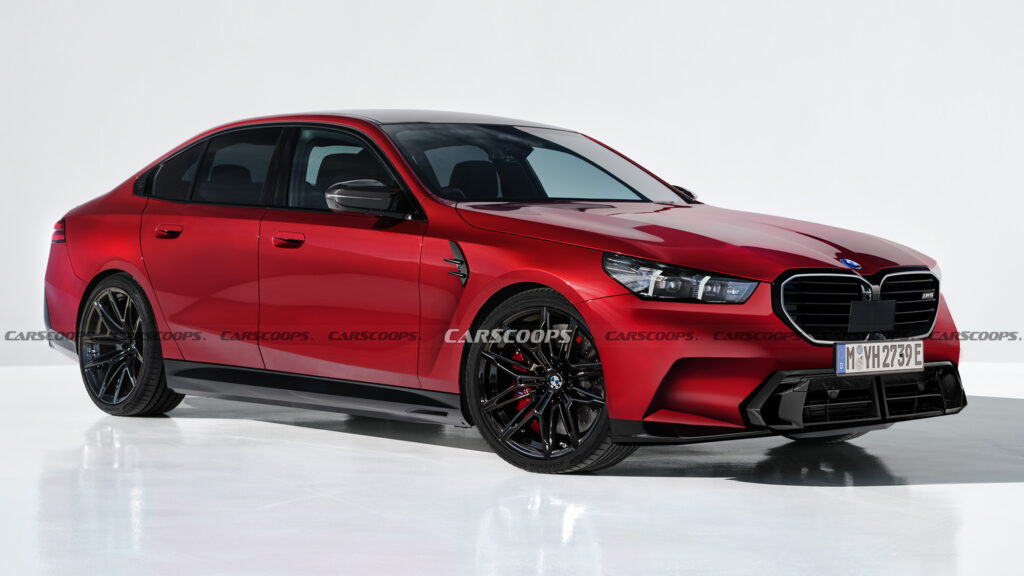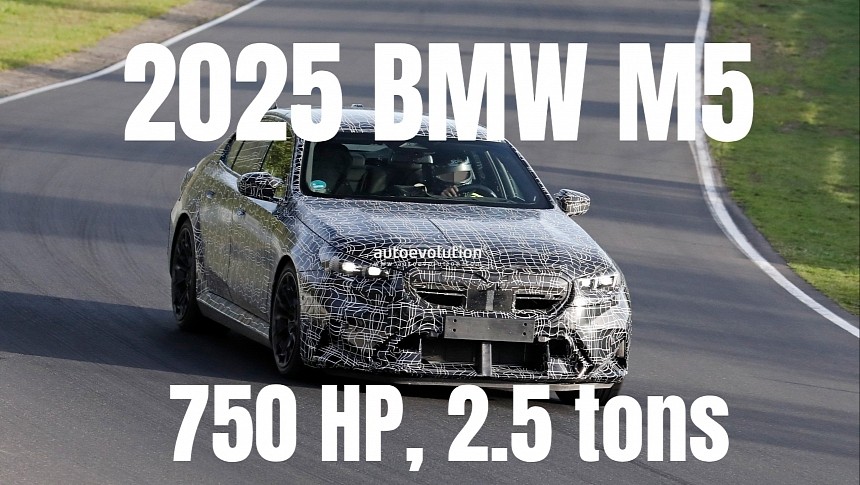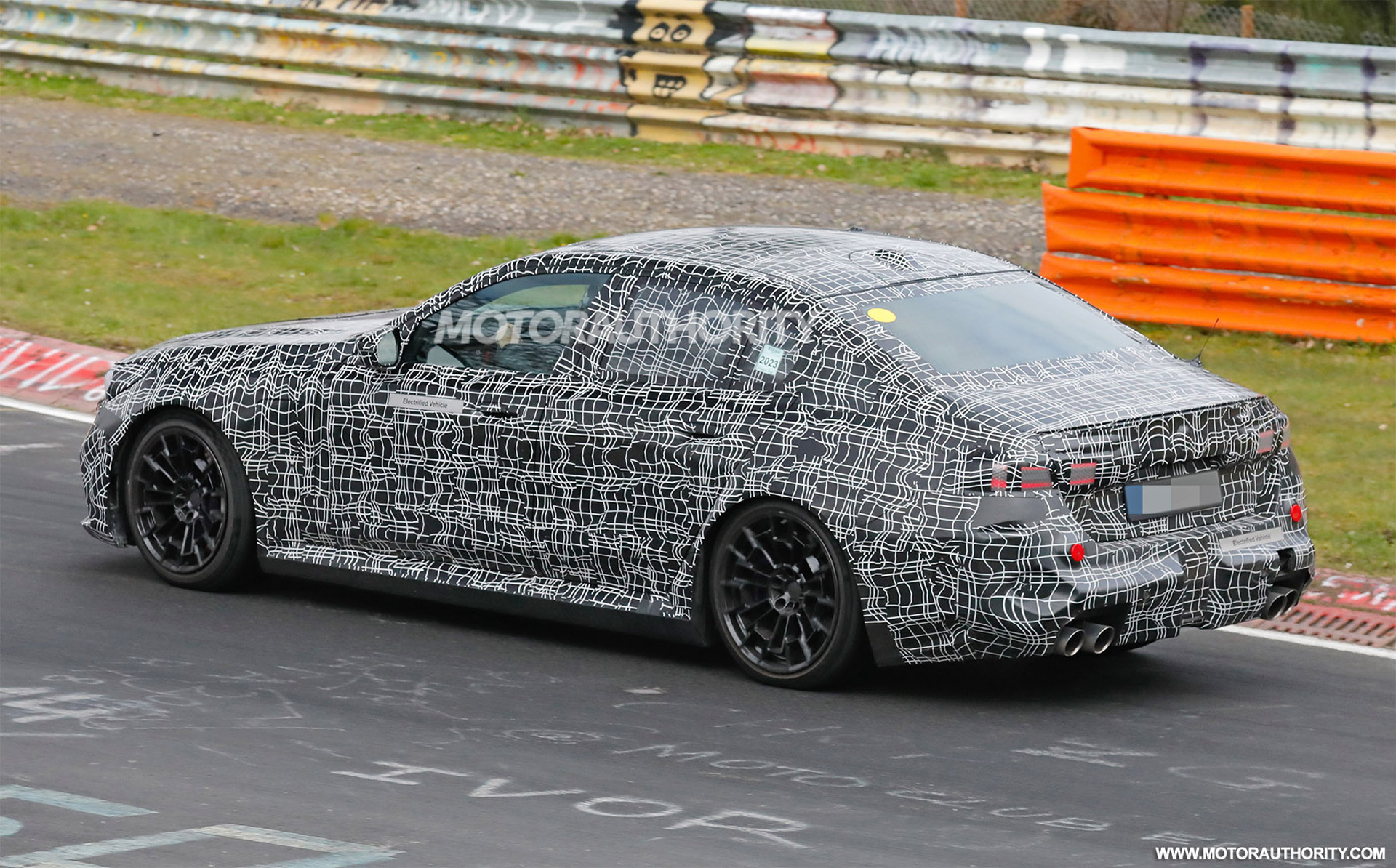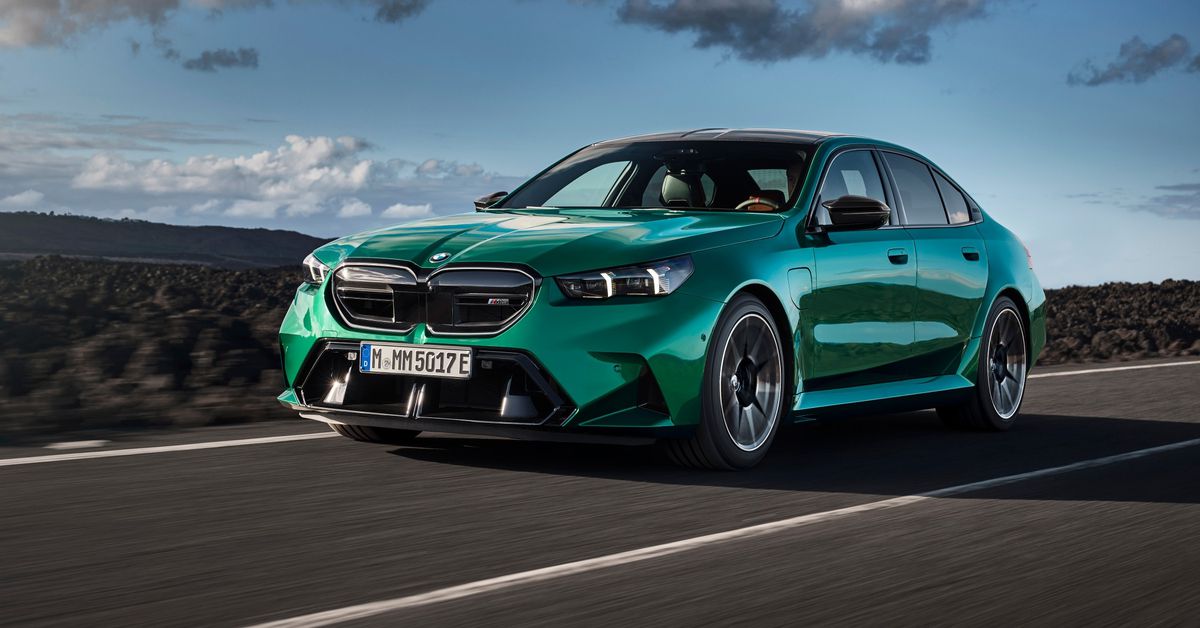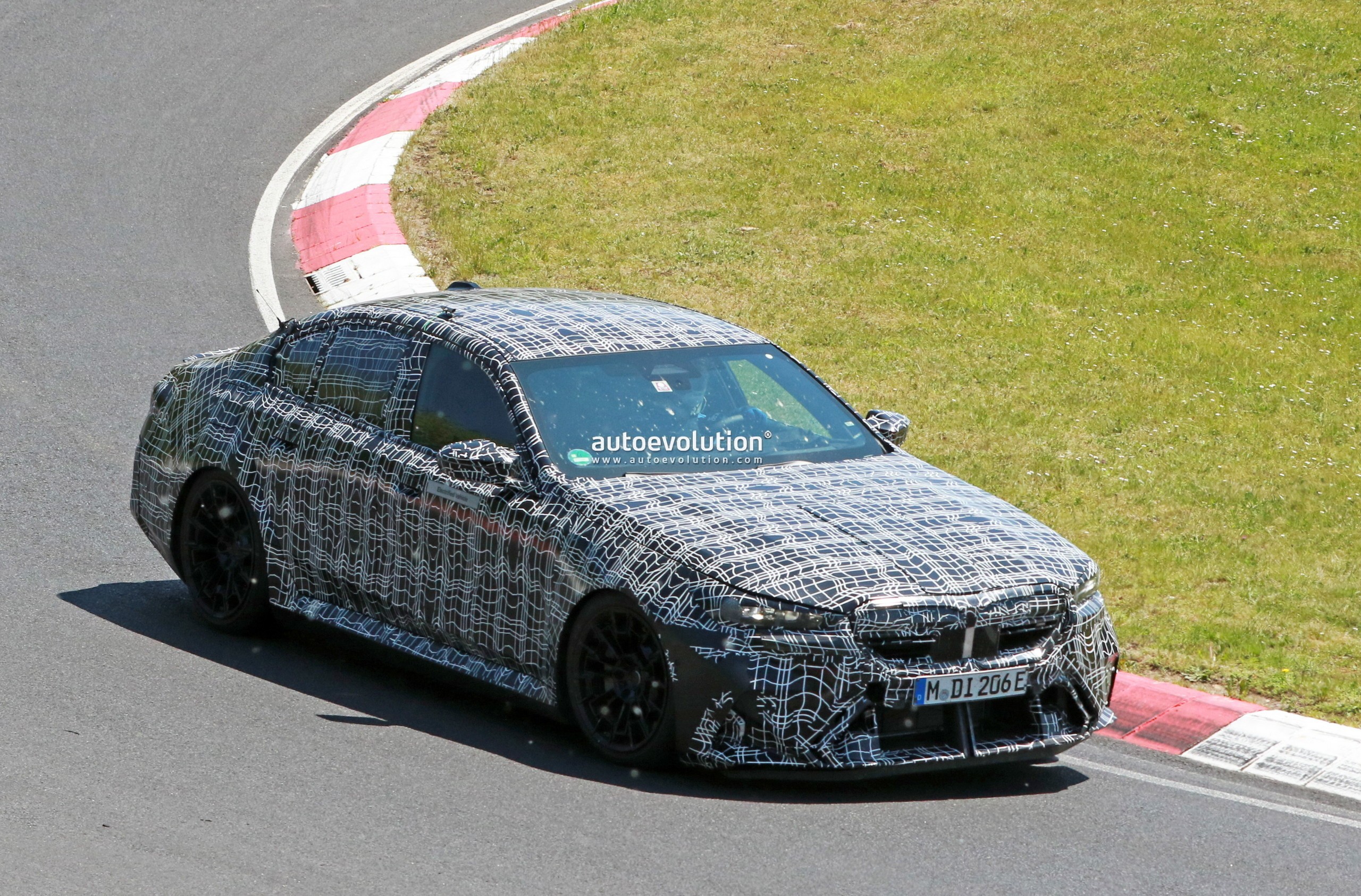
The 2025 BMW M5: A Weighty Matter
The BMW M5, a performance sedan synonymous with exhilarating power and elegant design, has always held a unique position in the automotive world. While its predecessors have been celebrated for their raw power and handling prowess, whispers of a potential weight increase have begun to circulate around the upcoming 2025 model. This raises a crucial question: will the new M5 sacrifice its legendary agility for a focus on luxury and technology?
The Weight Debate: A Balancing Act
The automotive world is currently grappling with a complex dilemma. The increasing demand for advanced safety features, driver assistance systems, and luxurious amenities often leads to an inevitable increase in vehicle weight. This, in turn, can negatively impact performance, fuel efficiency, and handling. For the M5, a car that thrives on its dynamic capabilities, this trend presents a significant challenge.
While official figures for the 2025 M5’s weight are yet to be released, speculation suggests that it could be heavier than its predecessors. This is primarily due to the anticipated inclusion of:
- Advanced driver assistance systems (ADAS): Features like adaptive cruise control, lane keeping assist, and autonomous emergency braking require additional sensors, cameras, and software, adding to the overall weight.
- Electric components: With the M5 likely to feature a hybrid powertrain, incorporating electric motors, batteries, and associated components will inevitably contribute to a higher curb weight.
- Increased sound insulation and comfort features: To enhance the luxurious experience, the 2025 M5 might feature improved sound insulation, thicker glass, and more luxurious interior materials, all of which contribute to a heavier car.
The Impact of Weight on Performance
The weight of a car directly impacts its performance in various ways. A heavier car requires more power to accelerate and decelerate, leading to:
- Slower acceleration: The M5’s trademark acceleration could be slightly compromised, resulting in a slightly higher 0-60 mph time.
- Reduced fuel efficiency: Moving a heavier vehicle requires more energy, potentially leading to a reduction in fuel economy.
- Compromised handling: A heavier car may exhibit less nimble handling, potentially impacting cornering speeds and overall agility.
However, it’s crucial to remember that weight isn’t the sole determinant of performance. The 2025 M5 is expected to feature a powerful hybrid powertrain, potentially offsetting the weight increase with enhanced power and torque. Additionally, BMW’s engineering prowess could potentially mitigate the negative effects of weight through advanced suspension tuning, weight optimization techniques, and a more efficient powertrain.
The Role of Technology: A Balancing Act
While the weight increase might seem detrimental, the 2025 M5 is expected to benefit from advancements in technology. The introduction of a hybrid powertrain could offer:
- Improved performance: The electric motor’s instant torque delivery could enhance acceleration and provide a more responsive driving experience.
- Increased fuel efficiency: The hybrid system could potentially improve fuel economy, despite the added weight.
- Enhanced driving dynamics: The electric motor could assist in cornering, potentially improving handling and agility.
Furthermore, the inclusion of advanced driver assistance systems could offer:
- Enhanced safety: Features like adaptive cruise control and lane keeping assist can significantly improve safety and reduce the risk of accidents.
- Improved comfort: Driver assistance systems can reduce driver fatigue and enhance the overall driving experience.
The Future of the M5: A New Era of Performance
The 2025 BMW M5 represents a significant evolution for the iconic performance sedan. While the anticipated weight increase might raise concerns, the potential benefits of a hybrid powertrain and advanced technology could ultimately lead to a more capable and refined driving experience.
Beyond the Numbers: The Importance of Driving Experience
Ultimately, the success of the 2025 M5 will depend on the driving experience it delivers. While weight figures are important, the real test will be how the car feels on the road. Will the added weight be noticeable? Will the hybrid powertrain enhance or detract from the driving experience? Only time and extensive road testing will reveal the true nature of the 2025 BMW M5.
The 2025 M5: A Look Ahead
The 2025 BMW M5 promises to be a fascinating evolution of a legendary car. While the weight debate will likely continue, the focus should ultimately be on the driving experience. If BMW manages to successfully integrate the new technologies and optimize the weight distribution, the 2025 M5 could redefine the performance sedan segment, offering a compelling blend of power, luxury, and cutting-edge technology.
Conclusion
The 2025 BMW M5 stands at a crossroads, poised to navigate the complex balance between performance and technology. The potential weight increase raises concerns, but the promise of a hybrid powertrain and advanced driver assistance systems offers exciting possibilities. The true measure of the new M5 will ultimately lie in its ability to deliver an exhilarating and engaging driving experience, while remaining true to its legacy of performance and luxury.

